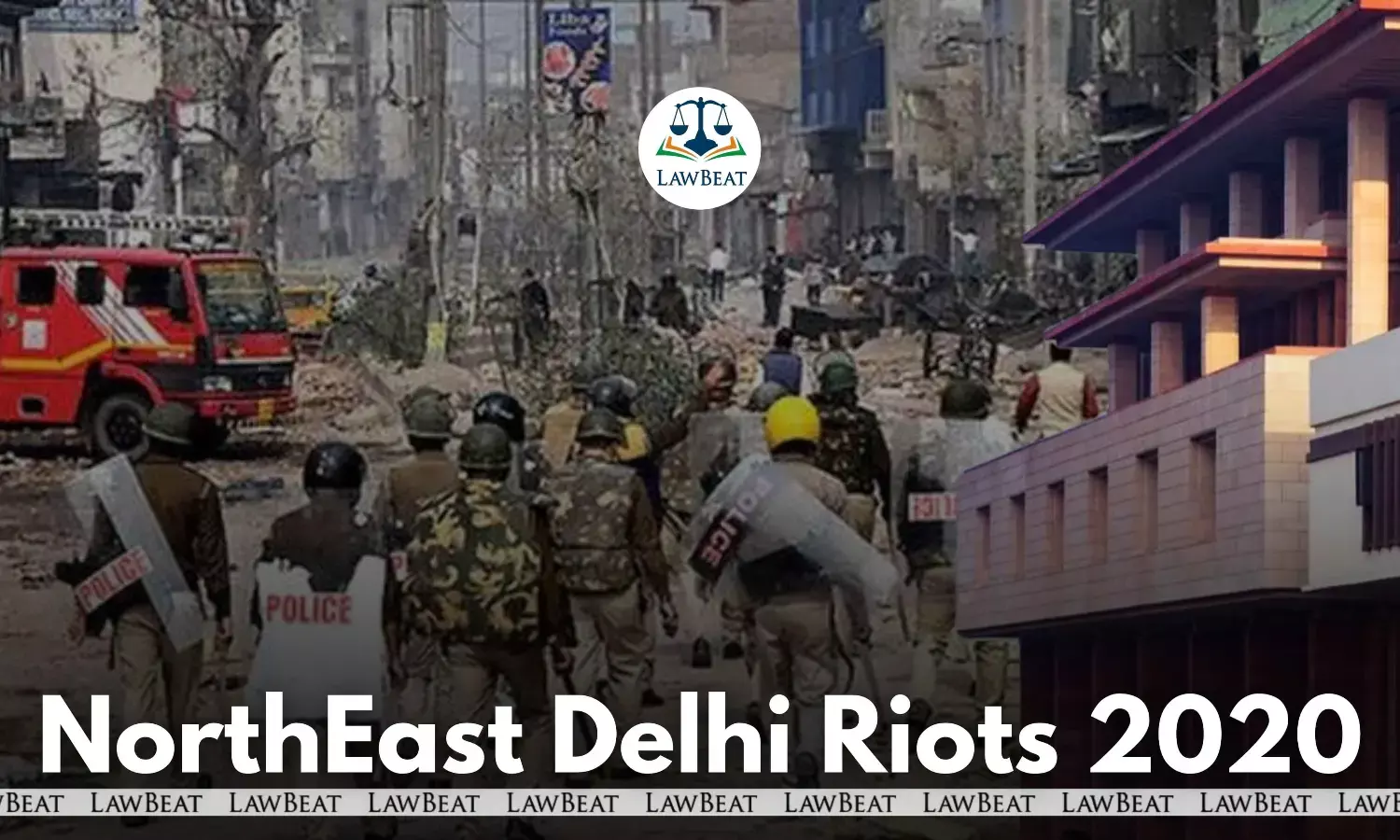Deserve Bail on Principle of Parity: Gulfisha Fatima Before Delhi HC In Delhi Riots Case

Gulfisha Fatima, on Tuesday, sought bail from the Delhi High Court, arguing that all her co-accused in the present case and related matters had already been granted bail. She contended that, on the principle of parity, she too was entitled to the same relief. The advocate argued, "My second argument is on the principle of parity. The co-accused are on bail and therefore I should also be granted bail".
Her submissions formed part of a batch of petitions filed by individuals accused in connection with the larger conspiracy related to the 2020 Northeast Delhi Riots. The matter was heard by the bench of Justice Navin Chawla and Justice Shalinder Kaur.
During the hearing, the advocate representing Gulfisha Fatima made extensive submissions challenging the prosecution’s case against her. The counsel stated that the appeal had remained pending before the High Court for three years. The state had filed two documents, one of which was a general overview note outlining the alleged conspiracy and execution of the riots.
The advocate highlighted that, according to the prosecution, the conspiracy began in early December 2019 and continued until the filing of the chargesheet. It was alleged that Fatima had organised protests in Seelampur, where she also resided. The prosecution further claimed her presence at two secret meetings. However, the advocate contested the sanctity of these meetings, asserting that the evidence stemmed solely from statements made by protected witnesses who allegedly attended those meetings.
The advocate argued that Fatima was accused of instigating local women to collect red chilli powder and lathis among other items, but none of these items were recovered, nor was there any medico-legal certificate (MLC) indicating that anyone had sustained injuries from such materials. The advocate stated, "She was alleged to have encouraged the local woman to collect Red Chilli Powder and other things. But there was no recovery of these items, there is no MLC to show that anyone was injured by these items".
The advocate also pointed out the absence of video or geographic evidence directly linking Fatima to any violent act. Although some video evidence existed, it was part of a different case in which she had already been granted bail.
It was further submitted that Fatima participated in a chakka jam, which remained peaceful, as confirmed by a police officer’s testimony. Another allegation claimed she had received a bundle of currency notes, but according to the advocate, the witness who made this statement was not subjected to a Test Identification Parade (TIP) or any procedural safeguards.
The advocate argued that, on the face of the record, the elements constituting conspiracy were not made out in Fatima’s case. The advocate also criticised the statements of protected witnesses, calling them self-serving.
As a secondary argument, the advocate invoked the principle of parity, stating that since co-accused individuals had been granted bail, Fatima should be extended the same relief. The advocate pointed out that Fatima was not specifically named in the chargesheet and asserted that her role, if any, was lesser than that of another accused, Devangana, who had already secured bail.
The prosecution also alleged that Fatima was the administrator of two WhatsApp groups—"Aurato Ka Inquilab" (Women’s Revolution) and "Warriors". The chats from the latter group were included in the chargesheet. However, the advocate maintained that these chats merely contained logistical information about protest participation.
Updates in Other Matters:
In the May 2025 hearing, Athar Khan alleged that the investigating agency’s approach was selective and arbitrary. He asserted that individuals who had all attended the same meetings and protests were treated differently without any valid justification.
In the earlier hearing, the advocate appearing for Imam argued that the prosecution relies on chats of two WhatsApp groups, but failed to provide any message that shows the intention of Imam to incite violence or communal hate. “The prosecution claims that the chats led them to believe there was a conspiracy among all co-conspirators but strangely, there have been no chats with the said co-conspirators”, the advocate for Imam stated.
In another hearing, Sharjeel Imam argued that his inclusion in the investigation stemmed from his representative position in various associations, and the authorities sought to make an example out of him. Senior Advocate Salman Khurshid, appearing for Sharjeel Imam, pointed out that although Imam served as president of several associations, no other member from those associations was implicated. He maintained that Imam supported the protests in his representative capacity, without engaging in any unlawful activity.
For Petitioner: Advocates Harsh Bora and Maulshree Pathak
For Respondent: Additional Solicitor General Chetan Sharma, Special Public Prosecutor Amit Prasad with Advocates Ruchika Prasad, Ayodhya Prasad, Vishal Choubey, Saravjeet Singh, Harshil Jain, Amit Gupta, and Saurabh Tripathi
Case Title: Gulfisha Fatima v State (CRL.A. 211/2022)
